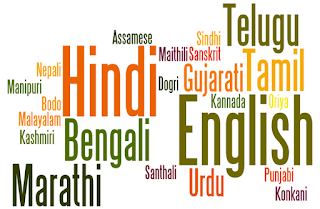As the unrest entered day 14 in one of India’s
popular hill station-Darjeeling, time and again it has been proved that forced
language imposition can lead to violence, political turmoil and the demand for
separate statehood. No matter we celebrate 70th year of independence
or 150th, there will always be a spark called language which can
cause lot distress, agitations which can spread like wildfire across states.
Speaking about
the current turmoil in the state of West Bengal, the unrest unfolded when the
ruling government mandated that Bengali be taught as a compulsory subject from
class 1 to 10, which did not go well in an area native to the Gorkha ethnic
group. Darjeeling is administered by Gorkhaland Territorial Administration, a semi-autonomous
body where Gorkha ethnic group have expressed desire for a separate state- Gorkhaland,
a desire which has been on for a century.
When India got
its independence, there were close to 568 princely states which were given
freedom to either join India or Pakistan or remain independent. However, the
Iron man of India Sardar vallabhai patel had made up his mind to get all the
provinces join the Indian union. However after independence the states were reorganised
on the basis of language.
The first
linguistic state was Andhra Pradesh for Telugu speaking people after a 56days
of agitation and the death of Potti Sriramulu-the man behind the movement. The
recent linguistic reorganisation of state was Telangana when K Chandrashekar Rao
(KCR) tried to do a Potti Sriramulu fearing which the union government agree to
his demands of separate statehood. Language has been used as a weapon which can
bring even the most powerful union government to its knee.
The present
Central Government of India, is trying by all means to make Hindi a link
language or the only national language of the country. The recent incident was
in Bengaluru when pro-kannada activists staged a protest against Hindi
imposition in the METRO stations. Language has become a very sensitive issue, a
part of life, an identity , a self-respect which none of us would like to lose.
Even when there is native language of the state being used in sign boards along
with Hindi and English, people always demand that native language of the state
has to find its place at the top followed by other languages.
The makers of
the constitution had a heated debate regarding the adoption of an official
language for the Republic of India. They had agreed upon Hindi as the official
language for a period of fifteen years (1950-1965) with English as the link language
and after which Hindi would become the sole official language. As the day
neared, 26th Jan 1965, full-scale riot broke out in madras which continued
for the next two months. It was only after the assurance of the then Prime
Minister Lal Bahadur shastri that English would continue to be used as the
official language as long as non-Hindi speaking states wanted.
The ruling
government when the riots happened in Tamil Nadu was the Congress party after
which it never came to power. Another classic example of how the issue of
language can keep a 132year old political party out of power.
If the demands
of various ethnic groups, for Kukiland in Manipur to Kongu Nadu in Tamil Nadu
and for kamatapur in North Bengal to Tulu Nadu in Karnataka are fulfilled,
India may have 50 states in future.
